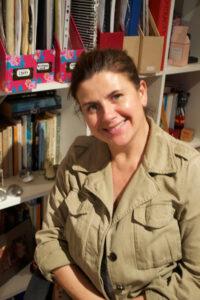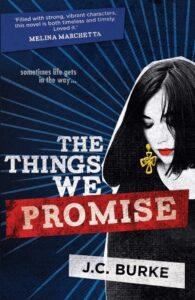 WHAT I REMEMBER ABOUT BEING A NURSE DURING THE AIDS EPIDEMIC
WHAT I REMEMBER ABOUT BEING A NURSE DURING THE AIDS EPIDEMIC
In the 1980s, many of my patients asked, ‘When are they going to find a cure for AIDS?’
It’s now 2017 and we still don’t have the answer.
Up until 1991, I worked as an oncology nurse in one of the major teaching hospitals in Sydney. At the time, there was a widespread fear of AIDS in the community. Hostility was rife, and this was often heightened by dangerous, divisive comments.
One patient who has always stuck in my mind was someone who was in the middle of gender reassignment when the surgeons got cold feet and wouldn’t finish the job. They believed that operating on an AIDS patient could contaminate their theatres and when they weighed it up, they thought it simply wasn’t worth the risk – to them at least. But not to the patient, who wailed like a child one night when I was on duty.
Room five was where this patient lay, hoping for the ‘procedure’ to be finished but also aware that death was sniffing at the door. I’ll never forget them. Their fear. Their long, fair hair framing their drawn, thin face. There are still days where I picture this patient, sitting on the chair by the window, lost in some limbo land between male and female, life and death. The word ‘cruel’ doesn’t do the situation justice.
During my time as a nurse, I witnessed the way AIDS ravaged the body. I encountered several haemophiliacs who became infected due to contaminated blood products. I learnt that one dose of the ‘crypto’ bug could halve a patient’s weight in less than a week.
There were parasites that came from cats that could attack the human brain until the patient didn’t know who they were or who anybody else was. Blindness was also a possibility. I witnessed purple lesions, known as Kaposi’s Sarcoma, splatter themselves across the body. The real enemy was pneumonia; if not treated quickly, it could steal the patient’s life almost overnight.
I always felt like those patients who acquired the virus through sexual contact had been served a sentence with an attachment. I witnessed their immune systems buckling under further stress. Sometimes, it was the stress of telling their family and loved ones about the diagnosis. It was devastating news for the family. For lovers, it often meant that ‘the beast’ had found them too. For many, informing family and friends of their diagnosis was also the first time that they ‘outed’ themselves. In NSW being gay wasn’t decriminalised until 1984.
Out in the country, my friend’s cousin was en route to their regional airport when he decided that it was time to tell his father he was off to Sydney because he’d been losing weight and having night sweats. He told him that he was gay and that he feared he may be HIV positive. His father booted him out of the car. He never made it home. He never saw his parents again.
Not everyone told their families. The risk was too great. Some just disappeared or relatives were informed of a cancer diagnosis and often the death notice simply read ‘died after a short illness’.
As a nurse what upset me the most – because I couldn’t fathom how it felt no matter how hard I tried – were those who nursed their lovers. Those who bathed and fed them, helped them onto the pan, held their hand as they listened to their raspy breathing, which was known as the ‘death rattle’. All the time knowing that this was possibly their fate too. That perhaps this death awaited them. I wonder how many followed their loved ones quickly?
AIDS peaked in Australia in 1994. Since then, treatment has come along in leaps and bounds and the rate of AIDS diagnoses has plummeted. HIV is now a ‘manageable’ condition, which perhaps accounts for the complacency that has crept in. I’d love to say the stigma’s vanished. But as someone who isn’t HIV positive and hasn’t been a practicing nurse for over ten years, I wouldn’t presume to make such a call. But I hope it has – because what happened to the patient in room five should never ever happen again.
***
J.C. Burke is an Australian author. She started writing her latest novel, The Things We Promise (Allen & Unwin, March 2017), after realising just how little her children (aged 20 and 22 at the time) knew about HIV/AIDS. The Things We Promise is about a young girl – Gemma – whose brother comes home from New York suffering from HIV/AIDS. Suddenly, her family’s whole world changes and their futures become uncertain. J.C. worked as a nurse during the 1980s and the 1990s and she was able to draw upon this experience when writing The Things We Promise.
Read our Q and A with J C Burke about The Things we Promise
Read Katie Mineeff’s review of The Things We Promise





